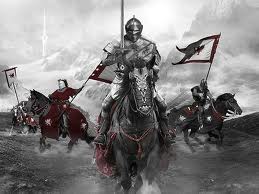

Later that year, and again in 1097, he repelled Almoravid armies that attempted to retake the city.įor centuries after his death in 1099, biographers, poets and-eventually- filmmakers, celebrated him as an honorable Spanish patriot and Christian warrior against the forces of Islam. His forces captured the city of Valencia from the Muslim, Morocco-based Almoravid dynasty in 1094. Historian Simon Barton writes that it was only near the end of his life that El Cid fought the battles that established his place in history and legend. As a commander fighting for the taifa of Zaragoza, an Arab Muslim state in what’s now Eastern Spain, he defeated both Muslim and Christian armies. Later, though, he spent more than a decade fighting mostly as a mercenary, putting himself at the service of a number of Muslim leaders and earning great wealth and fame. But his real story is a bit more complicated.īorn into an aristocratic Castilian family, Díaz became a prominent military leader serving two kings of Castile. 1043-1099) Rodrigo Díaz, more popularly known by his title, El Cid, is best-remembered as a hero of the Spanish Reconquista, leading Christian forces to victory over Muslim rulers in Spain. For example, his account of the Battle of Hastings-a triumph of mounted knights against an Anglo-Saxon army made up mostly of infantry-is based largely on eyewitness accounts from soldiers who fought there, providing one of the most important sources for modern historians. The priest didn’t hesitate to flatter his king in his writing, describing his charge into battle with gleaming shield and lance as “a sight both delightful and terrible to see.” But, despite his biases, William of Poitiers worked hard to get his facts right. Later, he provided a well-known account of the king’s life and the conquest. When William the Conqueror invaded England in 1066, William of Poitiers was his chaplain. Trained as a knight in his youth, William went on to become a priest and scholar. One of the earliest and most significant victories for knights in the Middle Ages was the Norman conquest of England, and a lot of what we know about that fight comes from William of Poitiers (c. New episodes of Knight Fight premiere Wednesdays at 10/9c.


 0 kommentar(er)
0 kommentar(er)
